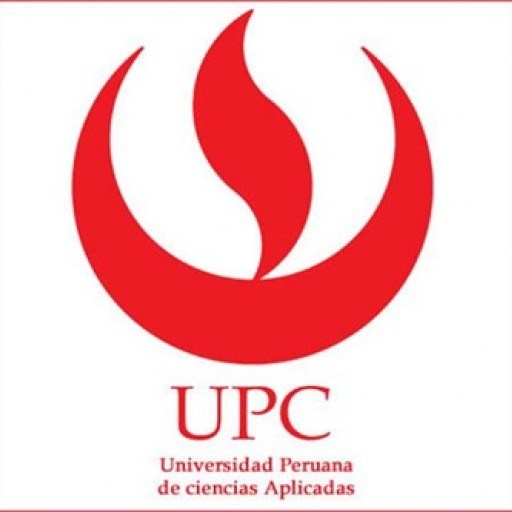Advertisement
The master's degree in Electronic Engineering is aimed at educating highly competitive researchers and professionals in the field of electronic engineering. It gives graduates from electronic, telecommunications, computer, electrical and related engineering studies the opportunity to acquire broad, solid and specialised knowledge in electronic engineering.
It is taught as a face-to-face course (students attend lectures and laboratory sessions) and as a blended learning course (students only attend laboratory sessions and the theoretical content is covered by additional teaching material). Our faculty are very experienced in dealing with part-time students and provide a support base that helps them to reach the academic objectives of the masters degree. Full-time students may also benefit from the approach.
Students will be prepared for a wide variety of areas in electronics such as micro- and nanotechnologies, RF, power, instrumentation, sensors and digital systems.
Professional opportunities
Given the cross-disciplinary characteristics of electronics, graduates of this degree may pursue careers in a broad range of sectors, such as ICT systems and electronic technology in general, medical electronics, consumer electronics, control systems, robotics, automation, electromagnetic compatibility, microelectronic design, smart sensors and data acquisition systems.
Companies operating in these sectors offer high added value in terms of technology and are therefore in need of professionals trained to master's level. Many of these companies foster technology innovation and have a highly dynamic presence in a strongly competitive market, which they achieve by counting research among their activities.
On finishing the master's degree, graduates will be able to:
Transversals competencies
Transversals competencies are those things that the graduate will be able to understand or do upon completion of the learning process, regardless of the specific course. The transversals competencies established by the UPC are: capacity for innovation and entrepreneurship, sustainability and social commitment, knowledge of a foreign language (preferably English), teamwork and proper use of information resources.
* Identify, formulate and solve problems in the electronic engineering field.
* Put the techniques, skills and tools of modern engineering to good use.
* Design a system, component or process that meets certain specifications in economic, social, political, ethical, health, environmental and sustainability-related areas.
* Carry out and direct projects.
* Understand engineering as an economic and business-related activity.
* Perform research and develop new products and services in the electronics and ICT fields.
* Critically apply knowledge of mathematics, science and engineering.
* Perform experiments and analyse and interpret the results.
This is a full-time, two-year course (120 ECTS credits) that is divided into four semesters (30 ECTS credits each). The subjects are grouped into four subject areas:
* The first subject area is a group of bridging courses that some students will be required to take if their admission profile is not the bachelors degree in Engineering of Electronic Systems or equivalent of another university. The maximum number of ECTS credits students are allowed to earn for bridging courses is 30 and these are included in the total of 120 ECTS credits for the masters degree.
* The second subject area(45 ECTS credits) is composed of compulsory subjects that provide basic knowledge of the different areas of specialisation in Electronic Engineering: * Power control and processing: Power converters, state dynamical models, linear control techniques in continuous and discrete time, current control, battery charging, power systems for LEDs, power factor correction, low power.
* Analog and RF electronics: Amplifiers, VGA, operational amplifiers, current conveyors, CFOA , continuous time filters, switched capacitor filters, A/D and D/A conversion, DNL, INL, parallel architectures, samplers, high velocity circuits.
* Instrumentation and Sensors: advanced electronic sensors, distributed instrumentation, virtual instrumentation, reliability, electromagnetic compatibility.
* Micro and Nanotechnologies: Semiconductor physics, junctions, transistors, photonic devices, sensors.
* Microelectronic Design: Full-custom and standard-cell design, transistor models for nano-scale design, basic analog VLSI circuits (current mirrors, basic gain stages, transconductors, operational amplifiers), matching, basic digital VLSI circuits, static CMOS logic gates and flip-flops, CAE tools.
* Advanced Digital Systems: Synchronization, DLLs, PLLs, metastability, clocks, resets, buses, communication protocols, integrated communication architectures (NoCs), embedded systems and RTOS, processors, embedded and advanced processors, multicores, manycores, FPGAs, internal architectures, Extensible Processing Platforms, PsoCs.
* Signal Processing: Sampling, quantization, digital filters, linear prediction, optimal predictors, adaptive systems, spectral estimation.
* Electronics Engineering Project Management (2 subjects): business plans, investment risk analysis, cost systems, innovation management, patents, organisational psychology.
* The third subject area comprises 45 free elective ECTS credits that will cover almost all subjects in Electronic Engineering. The student will be able to choose among other elective courses of the Telecommunication Engineering Master, MET (at the discretion of the tutor or supervisor).
* The fourth subject area (30 credits) comprises the masters thesis.
